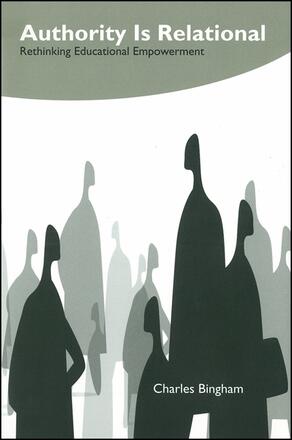
Authority Is Relational
Rethinking Educational Empowerment
Alternative formats available from:
A must read for anyone who wants to think in depth about contemporary classrooms.
Description
Written in an accessible and personal style, this innovative study of authority in education examines scenarios of authority in ways that problematize, augment, and redefine prevalent ideas of how it works. Usually seen as a thing that people have, the author suggests that authority should be understood instead as a relation that happens between people, which gets enacted in circuits where each participant has a role to play; those circuits can include teachers, students, the books they read, as well as former teachers and former students. Drawing on ideas from psychoanalysis, hermeneutics, philosophy of language, and the work of Jacques Derrida and Paulo Freire, the book offers a useful new understanding of authority in education.
Charles Bingham is Assistant Professor in the Faculty of Education at Simon Fraser University and coeditor (with Alexander M. Sidorkin) of No Education Without Relation and author of Schools of Recognition: Identity Politics and Classroom Practices.
Reviews
"The book is written with great clarity and in a personal style making it accessible to undergraduate students, without sacrificing a nuanced analysis that will be appreciated by graduate students, curriculum theorists, and philosophers of education. " — CHOICE
"Charles Bingham debunks the notion that teaching and learning are straightforward practices that can be improved by doing something 'other' or 'more,' an important contribution in the midst of dominant discourses that would have education be about the 'test/improve, test/improve' Sisyphean cycle. He turns our attention to the messy operation of human interaction, encouraging us to enrich our notions of authority and relation, which in turn enriches our notions of learning at the level of both schools and universities. This is one philosophical text that, refreshingly, does not shy away from examining classroom applications. " — Kate Evans, author of Negotiating the Self: Identity, Sexuality, and Emotion in Learning to Teach